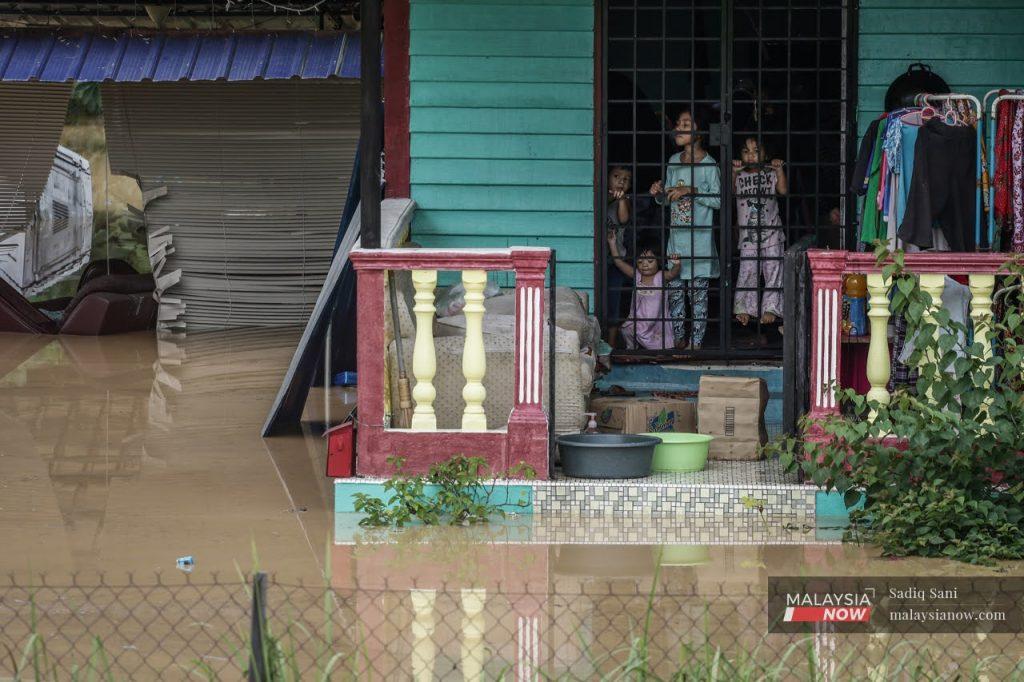The role of politicians when disaster strikes
While representatives should get involved in relief efforts, they should not exploit disasters for their political benefit.
Just In
Controversies involving representatives from both sides of the political divide during the recent floods which hit a number of areas in the Klang Valley last month have given rise to the question of the role of politicians during times of crisis.
Hasanuddin Mohd Yunus, whose parliamentary seat of Hulu Langat was particularly hard hit, was heavily criticised on social media for being out of the country while his constituents struggled to deal with rising floods back home.
Kota Kemuning assemblyman V Ganabatirau and Kuala Selangor MP Dzulkefly Ahmad suffered a similar backlash, with one flood victim openly venting his frustrations on Dzulkefly, questioning his whereabouts during the people’s time of need.
In general, people appeared to take a cynical view of their elected representatives, even those who were lumped together on the opposite end of the spectrum and slammed for their involvement in flood relief efforts.
Muar MP Syed Saddiq Syed Abdul Rahman, for example, uploaded pictures of himself at a coffee shop covered in mud, while Women, Family and Community Development Minister Rina Harun experienced her own disaster on the public relations front when photos went viral of her using a water jet at a school in Selangor while half a dozen bystanders took pictures and videos.
But analysts say such experiences are not unique to Malaysia, with even former US president George W Bush criticised for his plane trip to review the aftermath of Hurricane Katrina in 2005.
Prominent thinker Chandra Muzaffar said the presence of political leaders at disaster locations was inevitable.
“We can’t say ‘MPs, don’t come’ if there is a crisis,” he said. “They will be sure to come anyway.
“Anywhere in the world, elected representatives will come to disaster locations.”
He added however that their presence should not get in the way of relief efforts, saying visits by politicians should also be arranged in an appropriate manner.
Speaking to MalaysiaNow, he also objected to politicians using disasters as photo-ops.
“This matter of publicity should not be encouraged,” he said. “Don’t exploit disaster situations. This is not about you, it’s about the well-being of the people.”
Zaid Ahmad of Universiti Putra Malaysia said representatives could do more significant work than just posing for pictures.
“Leaders have influence,” he said. “They can move the masses and rally support from various parties and private companies.
“This is where their influence can be used. They shouldn’t just go down and spray some water around.”
Referring to the recent floods, he said victims and evacuees were still in need of clean water.
“Where are the water filter companies that have been raking in profits this whole time? That is where leaders should use their influence.”
Nevertheless, he said, if leaders don’t go down to the ground, it gives off a bad image of those who do not “act”.
He said the public needs to be educated to change the perception that elected representatives must personally visit every home whenever disaster strikes.
“Go meet the victims and lend them moral support, but the focus of representatives should be on mobilising the efforts of all parties.
“Their role is to ensure that all government agencies carry out their respective duties,” he said.
Subscribe to our newsletter
To be updated with all the latest news and analyses daily.
